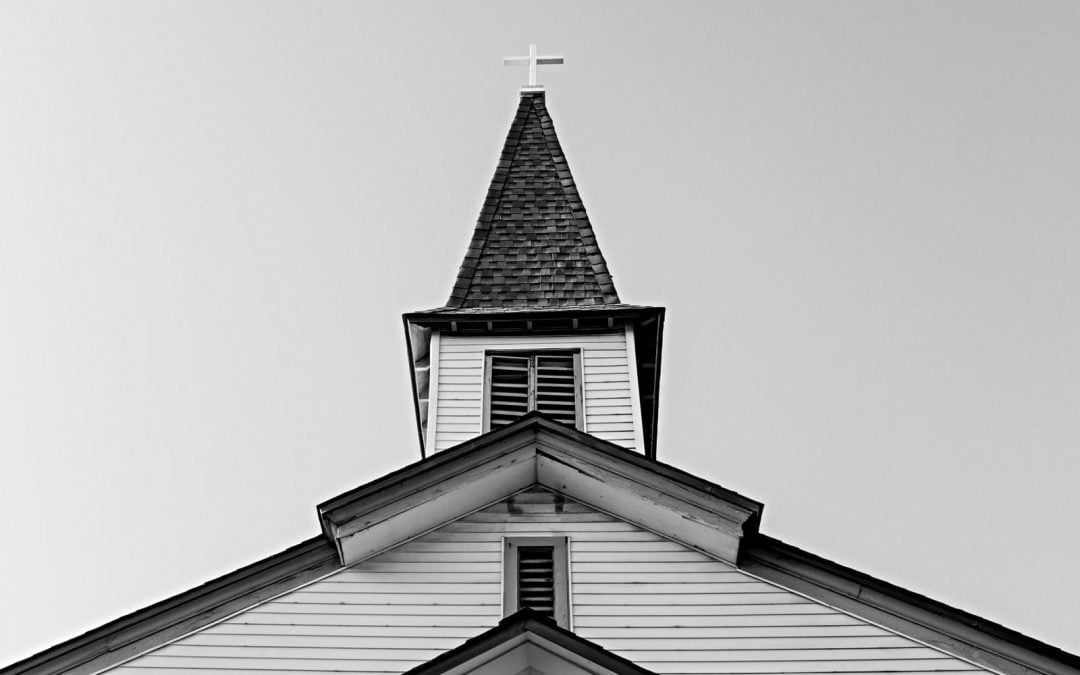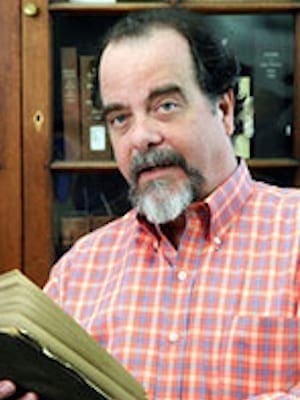Editor’s note: This article first appeared on July 8, 2003. At the time of publication, Wilson was professor of theology and chair of the Roberts Department of Christianity at Mercer University in Macon, Georgia.
The idea of a Christian America is deeply entrenched in a broad segment of citizens of the United States.
Where the does the notion arise and can it be supported?
As a matter of history, the idea of a Christian America is the product of the merging of three very different periods spanning 150 years leading up to the Revolutionary War.
Proponents of a Christian America fail to separate the contexts of the Puritan settlement of New England in the mid-17th century, the revivalism associated with the Great Awakening in the mid-18th century and the philosophical movement among the likes of Thomas Jefferson and Benjamin Franklin in the late 18th century.
Among the earliest colonists to arrive in North America were Puritans who fled persecution from the Church of England.
From the beginning of their adventure in the new world, these Puritans cultivated the conviction that New England was nothing less than “God’s New Israel.”
In part, they supported their convictions with a creative reading of Isaiah’s many references to “the coastlands” (see Isaiah 41 and 42, for example, especially Isaiah 42:4, “and the coastlands wait for his [the servant of the Lord’s] teaching”).
The most famous of the Puritan settlers in New England were Increase Mather and his son, Cotton.
The elder Mather made his mark in colonial America as the first president of Harvard and his progressive attitude of working with diverse segments of the Massachusetts colony.
The younger Mather is best remembered for his expansive history of America, “Magnalia Christi Americana.”
Cotton Mather’s work was in part an attempt to revive the Puritan experiment and influence in New England, which had waned by the end of the 17th century.
In the 18th century, a new wave of religious consciousness swept the colonies. The Great Awakening spread westward and southward out of New England.
In the Northeast, Jonathan Edwards – a Puritan – developed a following, pressing hard for an active pietism among those who responded to the gospel.
In the middle states and into the South, George Whitfield – an Arminian – made great gains as a revivalist.
Even John Wesley conducted a preaching mission in Georgia, promoting the Arminian theology of the emerging Methodist church.
The Christian church increased in its influence and, in the process, fanned the fires of freedom.
Arguably the enthusiasm of the Great Awakening and its insistence upon personal accountability fueled a growing impetus toward freedom in the colonies.
Near the end of the 18th century, a thoroughly philosophical movement emerged in the colonies.
British political philosophers Thomas Hobbes and John Locke tried to sort out implications of the Protestant Reformation and the recent revolution in England.
Building on their musings, Thomas Jefferson and Benjamin Franklin – among others – articulated a vision of government rooted in natural law.
Were Jefferson and Franklin and others religious? Without a doubt.
They were deeply committed to confessions that “by nature” human beings had broad rights.
Jefferson’s words in the Declaration of Independence – “We hold these truths to be self‑evident, that all men are created equal, that they are endowed by their Creator with certain unalienable rights, that among these are Life, Liberty and the pursuit of Happiness” – are consistent with the passions and persuasions of Deists at the end of the 18th century and the beginnings of the 19th.
Deists believed that “the Creator” had forged a universe founded upon “law” that governed all things, including the natural and political arenas.
Were Jefferson and Franklin Christians? Absolutely not.
Jefferson was attracted to the moral teachings of Jesus, but he rejected all of the claims of the New Testament concerning the divinity of Christ and his power to work miracles.
The Jefferson Bible makes clear that Jefferson could not be counted among Christians.
Franklin likewise rejected the orthodox Christian teaching. Franklin thought that Jesus of Nazareth was a “good philosopher,” but he also believed the Jesus story had been perverted by superstition and legend.
Franklin flatly rejected claims that Jesus was the Son of God.
The idea of a Christian America depends on a particular reading of history. Those who collapse the influences of Puritan colonists, Great Awakening revivalists and Enlightenment philosophers into a single reality find evidence of a Christian America.
On the other hand, those who see those features of American history as contiguous rather than continuous have good reasons not to claim that America is rooted in Christianity.
A careful reading of history will demonstrate that the idea of a Christian America cannot be supported.
A generation ago, Reinhold Niebuhr cautioned against investing “Christian” values in any social or political institution.
Niebuhr said that the best one can hope for is the presence of Christians amid the political establishment.
Only then, he wrote, is there hope that the gospel might transform the system.


